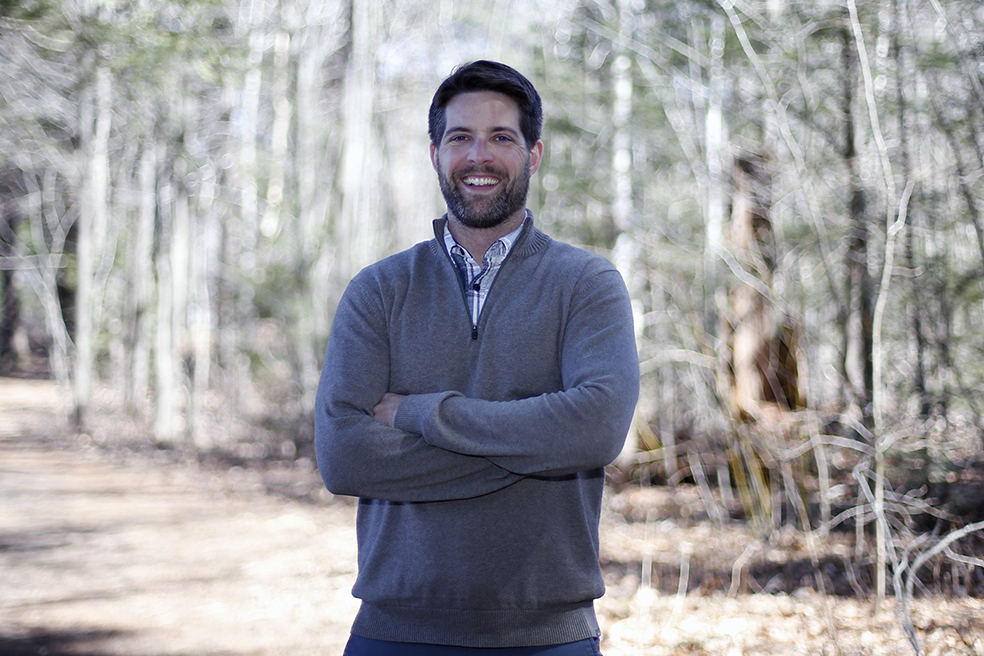Warren Biggins: Natural leader

Phillips Exeter Academy’s new manager of sustainability and natural resources, Warren Biggins, doesn’t mind being called “green.”
It’s a term, however, that applies only to his area of focus, and not to his level of expertise. He brings with him more than 15 years of professional and academic experience in conservation and sustainability. Before arriving at Exeter in February, Biggins spent four years in the sustainability department at Pitzer College in Southern California.
While there, he documented the college’s greenhouse gas emissions — a mammoth task done under a short deadline — which reinforced one of Biggins’ core beliefs about the work he does: “Whatever you’re able to accomplish in sustainability is directly proportional to the strengths of the relationships you form.”
As a new member of the Exeter community, Biggins is already doing that work and is encouraged by the school’s degree of institutional commitment to environmental stewardship and sustainability initiatives. In the past 10 years, Exeter’s Tier 1 carbon emissions — what is generated directly by the school — have declined by 60 percent, in part because of the switch from oil to natural gas as a heating source a few years ago. But there is more to be done, and Biggins is already at work crunching numbers to fully document the Academy’s emissions and identify a strategy for further reductions and planet-friendly initiatives.

Key to his work and, he says, “my favorite part of the job,” is providing inspiration and educational opportunities for Exeter students. He has already partnered with Exonians on a number of efforts, including an energy reduction challenge among dorms, the rollout of the RedBikes bike-sharing program and leading a waste audit during the campus-wide Climate Action Day in April — not to mention acting as a resource to the 13 student environmental clubs at Exeter.
“The textbook definition of sustainability is meeting the needs of the present without compromising the ability of future generations to meet their needs,” he says. “I think when we talk about business, traditionally we just talk about the bottom line, but we should also look at, ‘How is this affecting our communities? What are the social implications of our actions?’ ”
Biggins’ philosophy is honed from a series of professional stops prior to Pitzer that included interning with a land conservation organization in Seattle, partnering with the Chicago Park District in restoration efforts and a two-year stint as a guide at Grand Teton National Park in Wyoming. The native Chicagoan also earned a master’s degree from the Illinois Institute of Technology in environmental management and sustainability.

Standing at the trailhead of the Academy Woods Trail Network, Biggins waves off a flying insect before pointing down a path. “There are a lot of opportunities for wildlife viewing and experiential learning,” he says of the 800 acres of forest southeast of Exeter’s main campus. He partners with colleagues in Facilities Management to manage those woodlands. “It’s really a fantastic resource.” he adds. “It can be a really interesting experience [for students] to explore this part of campus.”
Biggins isn’t wasting any time to color Big Red an even brighter green.
— Adam Loyd
Editor’s note: This article first appeared in the summer 2019 issue of The Exeter Bulletin.